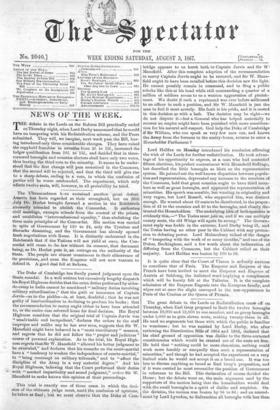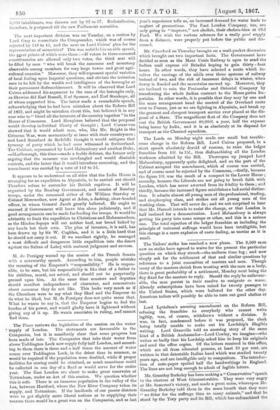The great debate in the Lords on Redistribution cants , off
on Thursday, when Earl Grey proposed to limit the twelve boroughs between 10,000 and 12,000 to one member, and so group boroughs under 5,000 as to gain eleven seats, making twenty-three in all. He used no arguments but those with which the public is familiar to weariness ; but he was resisted by Lord Derby, who after • reviewing the Distribution Bills of 1854 and 1866, declared that his chief ground of opposition was dislike to the three-cornered constituencies which would be created out of the seats set free. He held that "nothing could be more obnoxious, nothing could work more harshly or unequally than such a representation of minorities," and though he had accepted the experiment on a very limited scale he would not accept it on a broad one. It was toe late to discuss anything so broad as Earl Grey's proposition, and if it were carried he must reconsider the position of Government in reference to the Bill. This declaration of course decided the House ; but the debate went on, the main argument used by the supporters of the motion being that the householders would deal with the small boroughs in a spirit of dislike and suspicion. On the division, the motion was beaten by 98 to 86; and an amend- ment by Lord Lyveden, to disfranchise all boroughs with leas than
6,000 inhabitants, was thrown out by 93 to 37. Redistribution, therefore, is postponed till the new Parliament assembles.































